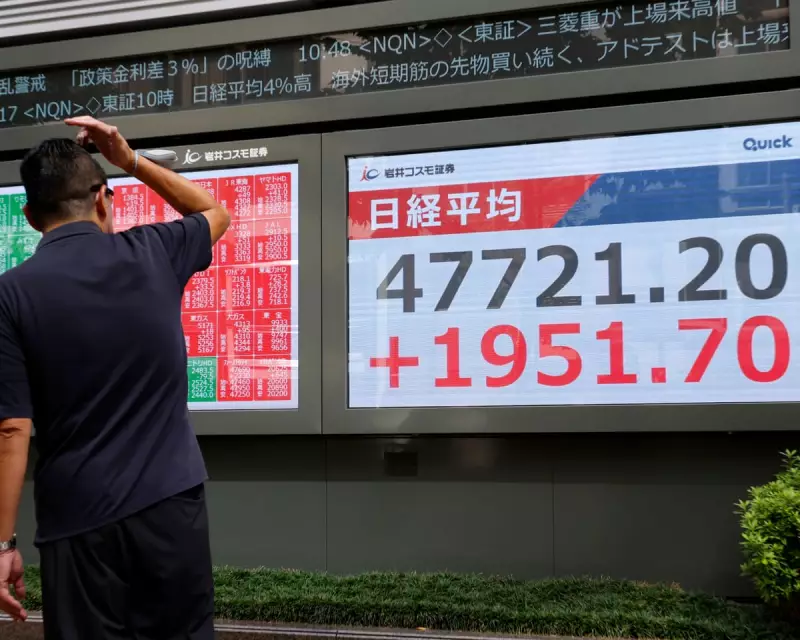
The Japanese yen has plunged to its lowest level in over three decades, creating shockwaves across global financial markets as investors digest the implications of Sanae Takaichi's decisive election victory. Meanwhile, the Nikkei stock index has soared to unprecedented heights, painting a complex picture of Japan's economic future.
Currency Crisis Deepens
The yen's dramatic slide saw it breach the psychologically significant 190 mark against the US dollar, a level not witnessed since the 1990s. This precipitous decline reflects growing market concerns about the Bank of Japan's ultra-loose monetary policy stance and its potential continuation under the new political leadership.
Stock Market Euphoria
In stark contrast to the currency's woes, Japan's benchmark Nikkei index surged to a fresh all-time high, propelled by the weak yen which typically benefits the country's export-heavy corporations. The divergence between currency and equity performance highlights the complex dynamics at play in the world's third-largest economy.
Takaichi's Economic Challenge
Sanae Takaichi's election victory positions her as a key figure in shaping Japan's economic policy direction. Known for her conservative stance on monetary policy, markets are closely watching for signals about potential shifts in the government's approach to the yen's weakness and broader economic strategy.
Gold's Meteoric Rise Continues
Amid the currency turmoil, gold has extended its remarkable rally, approaching the coveted $4,000 per ounce threshold. The precious metal's surge reflects growing investor anxiety about currency stability and global economic uncertainty, with many seeking safe-haven assets.
Global Market Implications
The yen's collapse carries significant implications for international trade and currency markets. Asian currencies face mounting pressure as the weak yen threatens regional competitiveness, while European and American exporters confront new challenges from cheaper Japanese goods.
What Comes Next?
All eyes now turn to the Bank of Japan and its response to the currency crisis. Market participants are divided between those anticipating intervention to support the yen and others expecting continued tolerance for weakness to support economic growth.
The coming days will prove crucial for understanding whether Japan's new political landscape will bring stability or further volatility to already turbulent financial markets.





